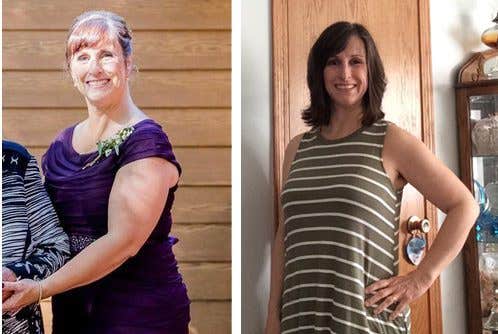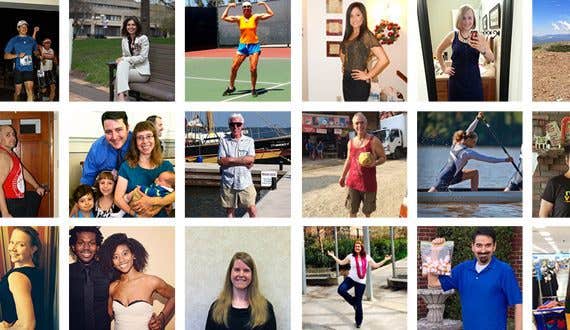
How a Plant-Based Diet Helped Me Restore Kidney Functioning
By Kelly Lawrence,
Last Updated:For more than 20 years, I have been a kidney patient with little to no hope. For many years, my nephrology team tried to persuade me to begin dialysis. I refused. Something in my gut told me it just wasn’t time and to hold off. I knew, deep down, that there had to be a way to help my kidneys perform better. Despite my low-functioning kidneys, I still lived what I felt was an active life, even though I had to give up running 5K races. (Looking back now, I see I was missing out on so many things by being too tired to participate.)
Then, last year, my doctors told me that my glomerular filtration rate (GFR) was 18—stage 4 of chronic kidney disease, the last stage before kidney failure—and that it was time to consider a kidney transplant. Their data stated that the average transplanted kidney lasts between 10 and 20 years. I'm 49 years old, so simple math dictated that if I hoped to live to 80 years old, I would likely need two kidney transplants over the rest of my lifetime. I felt that the gift of an organ was just too precious for me to ask anyone to donate more than once.
I pored over books and medical publications (such as JAMA) looking for clues to help me better my situation. I devoured educational materials designed for kidney patients and never saw a glimmer of hope. My outlook was bleak at best. I was tired, depressed, anxious, and worried about how my family would cope without me after my death.
Not only was I dealing with kidney disease; I was also diagnosed with paralytic stomach (gastroparesis), which made my stomach hurt terribly after each meal. And on top of all that, my cholesterol was 493.
Another Option
A friend of mine who also suffers from kidney disease mentioned that his doctor suggested a vegan diet. I began to research the vegan lifestyle, diving in full-force: I watched documentaries, read nutrition book after nutrition book, and began looking at recipes. Ultimately, I decided to try a whole-food, plant-based diet as a last resort before saying yes to a kidney transplant.
Before I made the switch to a whole-food, plant-based diet, I enthusiastically subscribed to the standard American diet: I gobbled up chocolate, pie, french fries, and potato chips as often as possible, but I told myself that since I cooked my meals from scratch each night that I was negating any harm french fries, burgers, and take-out chicken sandwiches might do.
Despite how drastically different a WFPB diet would be, I decided to give up animal products and highly processed foods cold turkey. I know myself too well: A taste becomes a bite, and a bite leads to a serving, and a serving leads right back into old unhealthy behaviors. So I made the switch overnight and started my new lifestyle on January 1, 2019.
Rapid Rejuvenation
I was shocked at how quickly my energy increased after going WFPB. I went from being a couch potato to having trouble sitting still. I couldn't believe how quickly I lost weight, and my cholesterol fell over 100 points by day 17.
Over the past three months, I’ve lost 30 pounds, lowered my cholesterol to 281 (without statins), and raised my GFR to 23. I no longer qualify for a kidney transplant! My stomach is completely healed; I no longer experience pain after meals.
I have always exercised some, but now I exercise with more regularity, and I look forward to my morning walk before I go to work. I am full of energy, and as an added bonus, my depression and anxiety have faded. I’m living life to the fullest! My first 5K race of the year is coming up in May.
Planning for Success
Forks Meal Planner has been an amazing asset to me. The planner makes food interesting, and I look forward to picking out my menu each week, along with reviewing the predetermined menus presented. Each recipe, start to finish, takes only 30 minutes. How great is that?
My favorite Meal Planner recipe is Veggie Fajitas, which are made with portobello mushrooms and peppers. Another favorite is the Portobello Pot Roast. I have always loved to cook, and the Meal Planner really keeps me interested in cooking, trying new ingredients and flavors. I now savor fresh pineapple; it’s so sweet! I highly recommend the Meal Planner to WFPB newcomers.
Some of my coworkers have joined me in eating WFPB. I try to post updates on the Forks Over Knives Official Plant-Based Group on Facebook as often as I can, because I want to help spread the word about how healing this way of eating has been for me.
I never “cheat” by eating non-WFPB; I just can't risk going back to my old eating habits. I value my newfound health too much to cheat myself!
Update (6/29/2021): In February 2020, I developed a presumed case of COVID-19 and became very ill. I survived, which my physician attributes to my healthful plant-based diet. Unfortunately, the illness severely impacted my kidneys and my eGFR fell to 10 percent, at which point I decided to pursue a kidney transplant. My brother donated to me in April 2021, and we are both doing well.
This article was originally published on April 9, 2019, and has been updated.

Has a whole-food, plant-based diet impacted your life?
We would love to hear about it!
SHARE YOUR STORY
Join our mailing list
Get free recipes and the latest info on living a happy, healthy plant-based lifestyle.
By providing your email address, you consent to receive newsletter emails from Forks Over Knives. We value your privacy and will keep your email address safe. You may unsubscribe from our emails at any time.